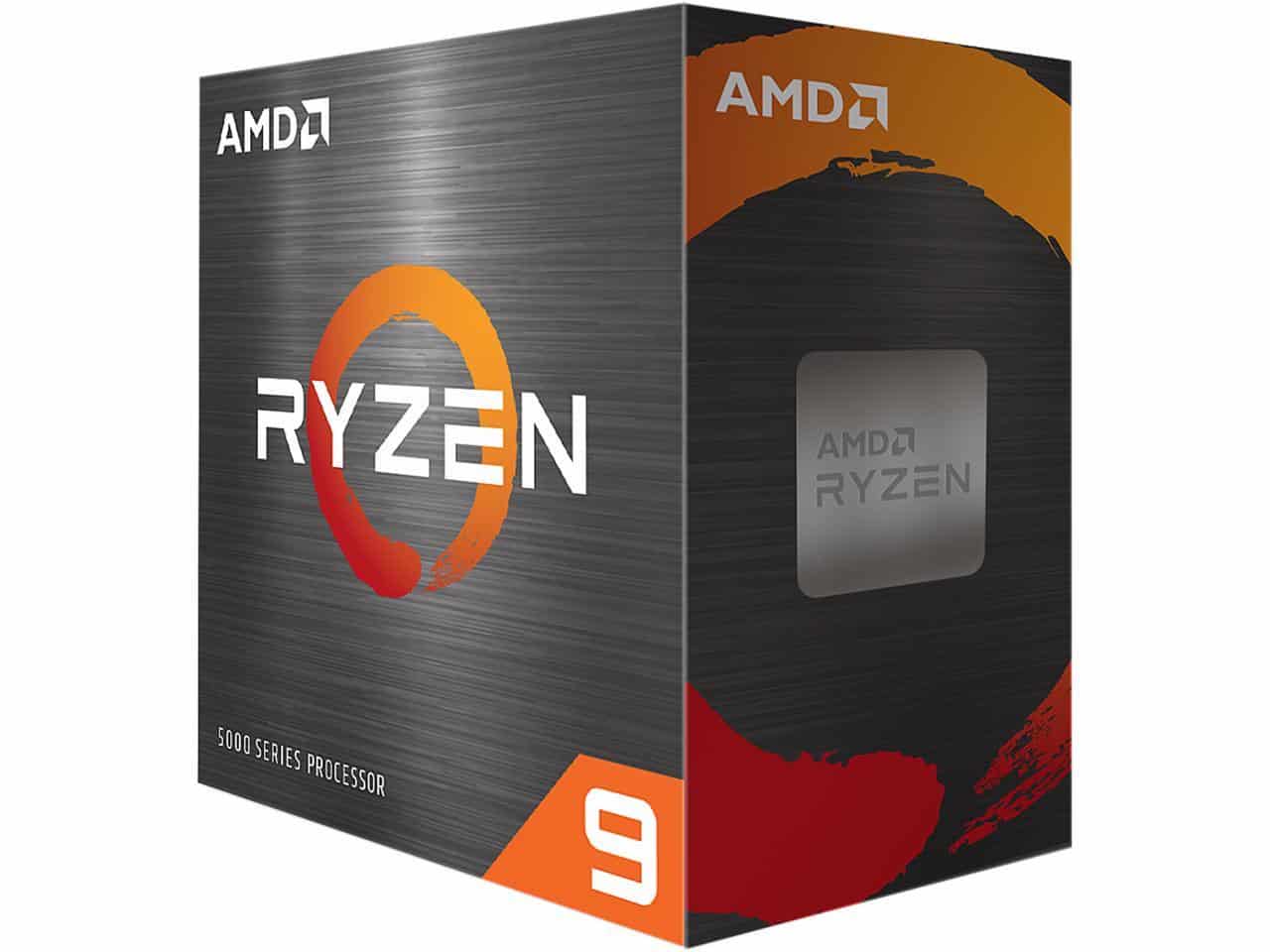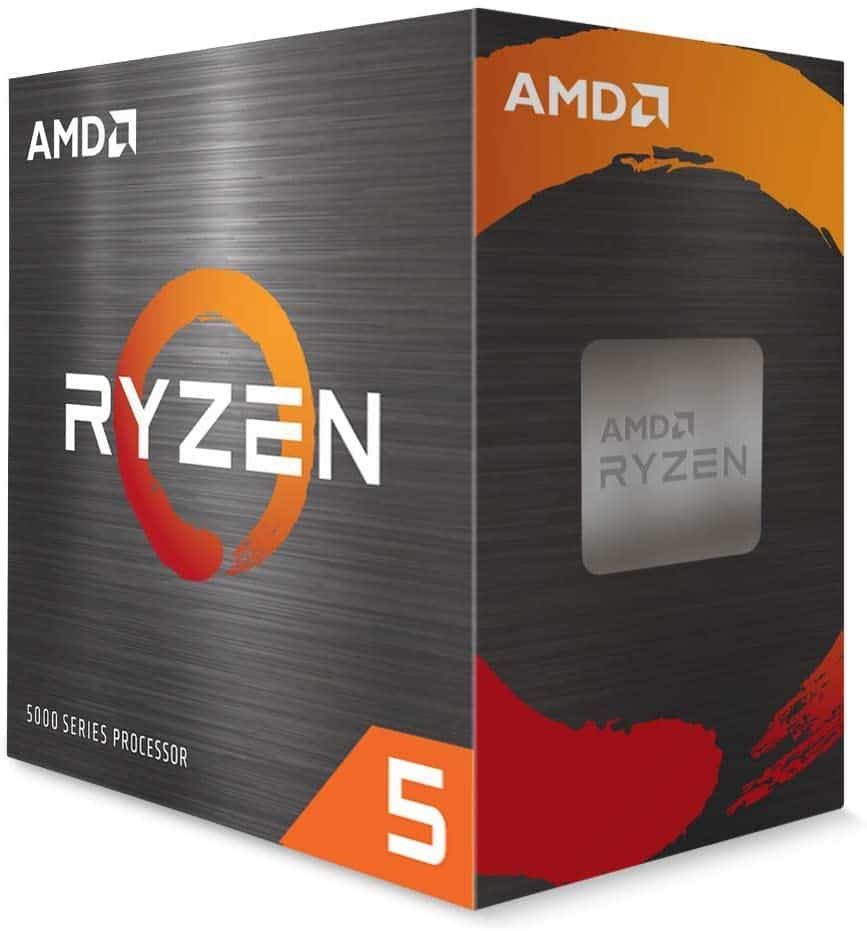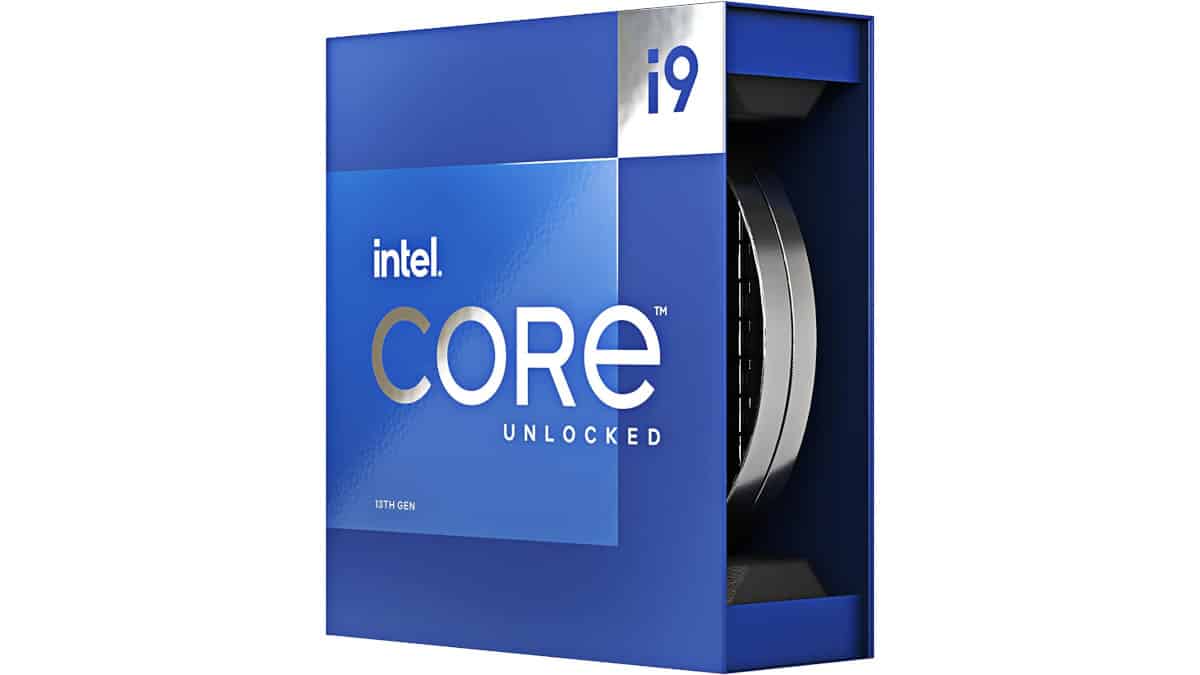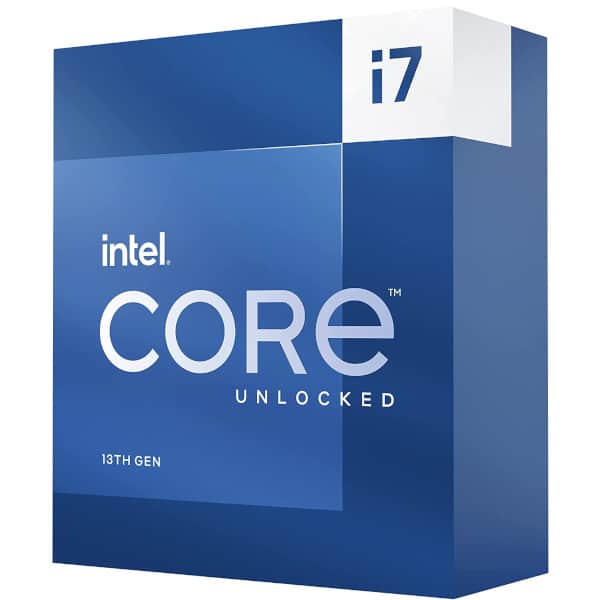Ryzen 9 9900X Vs Core i7-14700K – Can Intel keep up?

Table of Contents
The Ryzen 9 9900X is on the horizon, as it will be released on August 15th. It was previously scheduled to arrive on the 31st of July, but AMD later delayed the 9000 series.
The CPU is one of the most powerful processors in the 9000 series lineup. It is capable of handling demanding tasks with ease. But how does it stack up against Intel’s Core i7-14700K? We’ll find this out in detail. We reviewed the 14700K and found it to be an excellent processor for multiple tasks. In this guide, we will compare their clock speeds, foundation, TDP, and much more to help you make a well-informed decision regarding your next CPU.
Prime Day is finally here! Find all the biggest tech and PC deals below.
- Sapphire 11348-03-20G Pulse AMD Radeon™ RX 9070 XT Was $779 Now $739
- AMD Ryzen 7 7800X3D 8-Core, 16-Thread Desktop Processor Was $449 Now $341
- ASUS RTX™ 5060 OC Edition Graphics Card Was $379 Now $339
- LG 77-Inch Class OLED evo AI 4K C5 Series Smart TV Was $3,696 Now $2,796
- Intel® Core™ i7-14700K New Gaming Desktop Was $320.99 Now $274
- Lexar 2TB NM1090 w/HeatSink SSD PCIe Gen5x4 NVMe M.2 Was $281.97 Now $214.98
- Apple Watch Series 10 GPS + Cellular 42mm case Smartwatch Was $499.99 Now $379.99
- ASUS ROG Strix G16 (2025) 16" FHD, RTX 5060 gaming laptop Was $1,499.99 Now $1,274.99
- Apple iPad mini (A17 Pro): Apple Intelligence Was $499.99 Now $379.99
*Prices and savings subject to change. Click through to get the current prices.
If you want to make sure you get the Ryzen 9 9900X before it gets out of stock, check out our Where to Buy 9900X page. On it, we’ve listed all major retailers from where you can purchase the CPU when it goes live.
AMD Ryzen 9 9900X
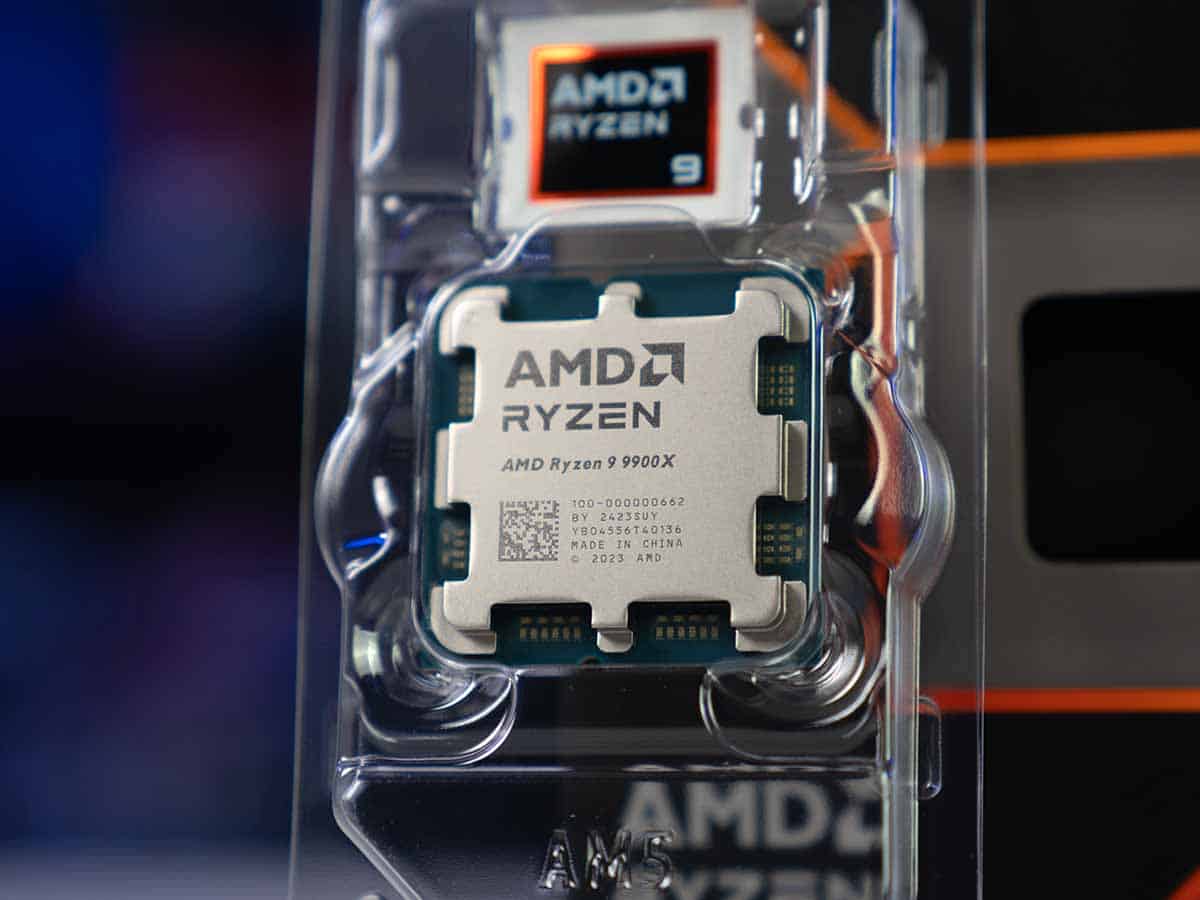
Cores
12
Threads
24
Boost clock speed
5.6 GHz
Base clock speed
4.4 GHz
L3 Cache
64 MB
TDP
120 W
Platform
AMD Socket AM5
Shop on Amazon
CHECK PRICEIntel Core i7-14700K
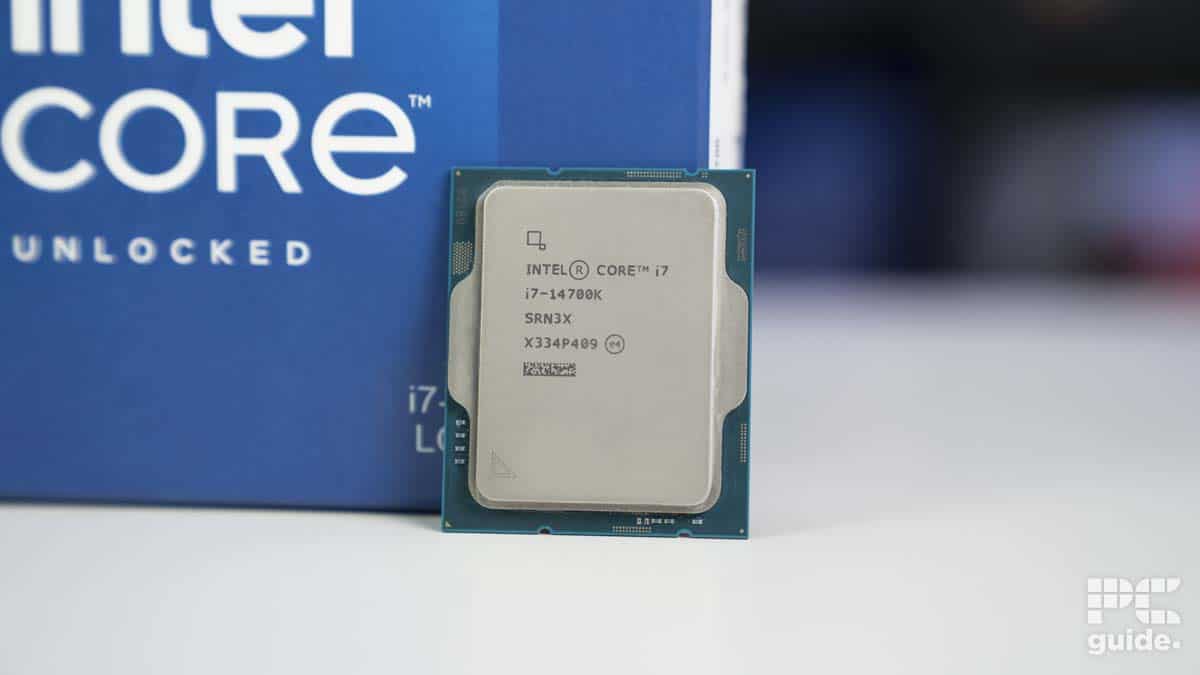
Cores
20 (8P-12E)
Threads
28
Boost clock speed
P-Core 5.5GHz / E-Core 4.3GHz
Base clock speed
P-Core 2.5GHz / E-Core 3.4GHz
L3 Cache
33 MB
TDP
125W
Platform
Intel Socket 1700
Shop on Amazon
CHECK PRICESpecifications
You can check out the specifications of both processors below.
| Specifications | Ryzen 9 9900X | Intel Core i7-14700K |
| Architecture | Zen 5 | Raptor Lake-R |
| Socket | AM5 | LGA 1700 |
| Process | TSMC 4nm FinFET | 10 nm |
| Cores | 12 | 20 |
| Threads | 24 | 28 |
| Base clock speed | 4.4 GHz | E-core 2.5 GHz, P-core 3.4 GHz |
| Boost clock speed | 5.6 GHz | 5.6 GHz |
| L3 Cache | 64 MB | 33 MB |
| TDP | 120W | 125W/253W |
| Integrated graphics | AMD Radeon Graphics | Intel UHD Graphics 770 |

Foundation and cores
The biggest difference between the two processors is their architecture. Well, they are made by two different companies after all.
AMD's 9900X is built on the Zen 5 architecture. This is the foundation of all AMD 9000 series processors, which are expected to offer significantly better performance than their competitors, thanks to the 16% IPC lift. On top of that, the 9900X also uses the 4 nm process technology, which places more transistors on a smaller board.

On the other hand, Team Blue's 14700K is a refresh of the Intel Raptor Lake and uses the same 10 nm process as before. In other words, its transistors are bigger in size compared to 9900X's, and hence the chip needs more cores.
As for what these CPUs pack, the 9900x has 12 cores and 24 threads. It also uses hyperthreading, which ensures that for every two threads, there is one core available. This improves the performance in multitasking and CPU-intensive tasks.
The 14700K divides its 20 cores into 8 Performance cores, which handle the demanding tasks, and 12 Efficient cores, which are optimized for light work. The reason why the 14700K has 8 more cores than the 9900X is its 10 nm process technology.
Clock speeds
Let's get down to how quickly a CPU can execute an instruction. At the base level, the Ryzen 9 9900X operates at a frequency of 4.4 GHz. What this means? It can handle 4.4 billion instructions in a second.
On the other hand, the 14700K fails to take the lead in this scenario, as its E-cores have a base frequency of 2.5 GHz, while the P-cores run at a speed of 3.4 GHz. This means that they can execute fewer instructions per second compared to the 9900X.
As far as the boost frequency is concerned, both CPUs can reach up to 5.6 GHz with overclocking. However, keep in mind that while overclocking will boost the performance of the processor, it will also cause it to generate more heat. What does this translate to? More heat. So, we recommend pairing your CPU with one of the best AIO coolers. Also, make sure you're using one of the best thermal pastes, as it can help keep the chip cool.
In our review, we found the 14700K to be a great mid-range CPU for those who want something that offers a mixture of affordability and performance. In Cinebench R23 single and multi-core tests, it achieved 2,174 and 33,914 points, respectively. And in Geekbench 6 single-core tests, we recorded 3,092 points and 21,046 points in multi-core tests. So, with the Zen 5 architecture and a better clock speed, the 9900X should deliver better overall performance.
TDP and cache
The TDP is where the Ryzen 9 9900X once again takes the lead, with a 120W power draw. On the other hand, the 14700K has a TDP of 125W, which can go up to 253W under load. So, you'll need to make sure you're using a big PSU with it, especially if you're using a powerful card like the RTX 4080 Super in your rig.
As for the cache, the 9900X can store more data with a 64 MB L3 Cache. As for the 14700K, it has a L3 cache size of only 33 MB.
Pricing estimates
The Intel 14700K was launched with a price tag of $409. But right now, you can buy it for only $398. Its price also gets discounted sometimes, and the lowest we've seen for it yet is $329.99, as per CamelCamelCamel.
On the other hand, AMD has yet to confirm the launch price of the 9900X. However, according to a leak that recently came to the surface, the processor might cost $549. You can also get a 14900K for a similar price.
What's different from the previous generation?
| Specifications | 9900X | 7900X | 14700K | 13700K |
| Cores | 12 | 12 | 20 | 16 |
| Threads | 24 | 24 | 28 | 24 |
| Cache | 64 MB | 64 MB | 33 MB | 30 MB |
| Max boost clock | 5.6 GHz | 5.6 GHz | 5.6 GHz | 5.4 GHz |
| Base clock speed | 4.4 GHz | 4.7 GHz | E-core: 2.5 GHz, P-core: 3.4 GHz | E-core: 2.5 GHz, P-core: 3.4 GHz |
| TDP | 120W | 170W | 125W/253W | 125W/253W |
| Architecture | Zen 5 | Zen 4 | Raptor Lake-R | Raptor Lake |
The AMD processors are pretty much the same in terms of core and thread count. They also share the same cache size. However, the 9900X has a slightly lower base clock speed and requires 50W less power than the 7900X.
On the other hand, the 14700K has 4 more cores and threads than the 13700K, and its cache size, as well as the max boost frequency, is also slightly better.
Alternate options
If you don’t think the 9900X or the 14700K match your requirements, then you can check out some alternate options below. We’ve reviewed most of these processors and found them to be a solid choice for multiple tasks.
-
AMD Ryzen 9 5950X
- Cores: 16
- Threads: 32
- Base clock speed: 3.4 GHz
- Boost clock speed: 4.9 GHz
- L3 Cache: 64 MB
- TDP: 105 W
-
AMD Ryzen 5 5600X
- Cores: 6
- Threads : 12
- Boost speed : up to 4.6 GHz
- Base speed: 3.7 GHz
- L3 Cache: 32 MB
- TDP: 65W
-
Intel Core i9-13900K
- Cores: 24 (8P-16E)
- Threads: 32
- Boost speed : P-Core 5.8GHz / E-Core 4.3GHz
- Base speed: P-Core 3.0GHz / E-Core 2.2GHz
- L3 Cache: 36 MB
- TDP: 253 W
-
Intel Core i7-13700K
- Cores: 16
- Threads: 24
- Platform: Raptor Lake-S
- Base Clock Speed: 100 MHz
- Boost Clock Speed: 5.4 GHz
- L3 Cache: 30 MB (shared)
Which one should you go for?
The 9900X, built on AMD’s advanced Zen 5 architecture and a smaller 4nm process, offers better overall performance compared to the 14700K. Its lower TDP makes it a cooler and more energy-efficient option, and with its 12 cores and 24 threads, it handles demanding tasks like video editing and 3D rendering with ease.
On the other hand, Intel Core i7-14700K offers more cores (20) and threads (28), leveraging Intel’s hybrid architecture with performance and efficiency cores. But while it has a higher base clock speed on its performance cores, the 9900X gains an advantage in performance due to its architectural advantages. The 14700K’s higher TDP also means it can run hotter and requires more powerful cooling solutions. And if you don’t already know, high-end AIO coolers can cost a lot.


